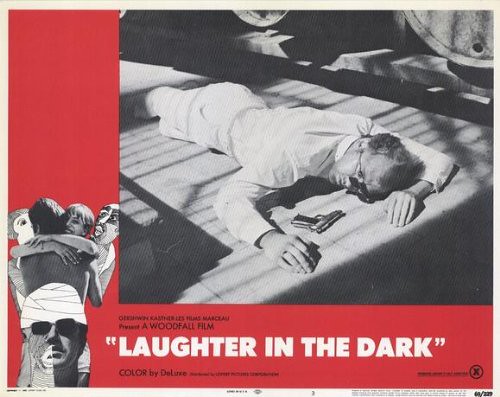
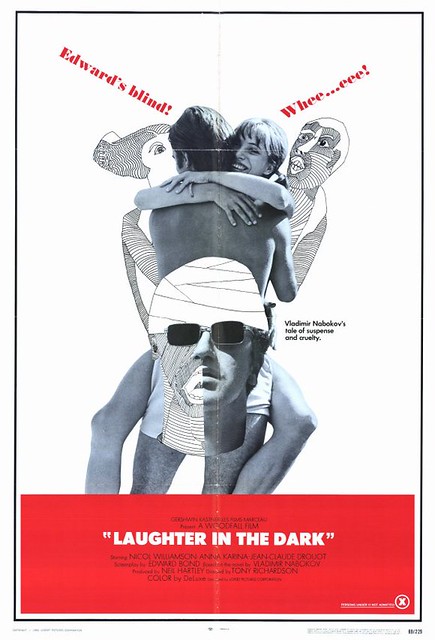
'Edward's blind! Whee...eee!'
Nabokov's book was published in Paris, in 1933 in his native Russian under the title of Kamera Obskura. The author's own English version, under the title of Laughter in the Dark was published in the USA in 1938, and published in the UK in 1961.
The film, now lost, was directed by Tony Richardson, then the David Bailey of the silver screen, who made his mark with gritty British dramas such as A Taste of Honey (1961) and The Loneliness of the Long Distance Runner (1962). It appears that the dramatic action is taken from 1930s Berlin to the 1960s (present day, when it was released in 1969). This suspenseful story of an unexpected menage á trois, concludes with devastating consequences.
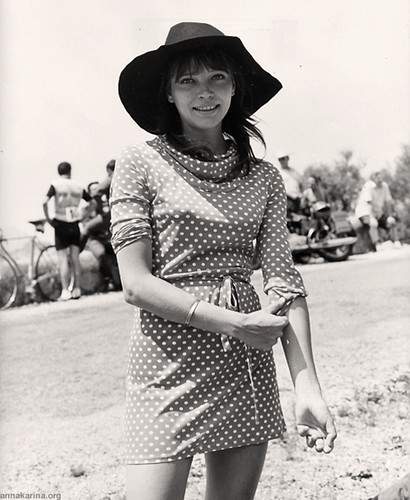
Anna Karina on the set of 'Laughter in the Dark' (1969)
Anna Karina plays the lead fille fatale role of the precocious teenager Margot. Born in Copenhagen, Denmark in 1940, Anna Karina was the original indie IT girl, beginning her career in Paris at 18, as a model for Chanel and Pierre Cardin, before her foray into film with some bit parts, until she met and later married the French new wave director Jean-Luc Godard, and the rest is cinema history.
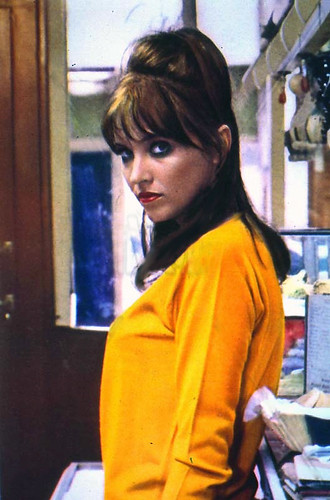
'A vulgar little Berlin girl'
The mystery of the film's disappearance has intrigued me for a couple of years, and fascinated by the plot, I had intended to read the book ever since. Last autumn, I came across a 1960s Penguin copy of the Nabokov novel in a charity shop and finally got around to reading Nabokov's incredibly visual story. The use of images from the film enhances its mystique for me, we'll never see this drama unfold onscreen. I've included excerpts below, with official stills from the film, in an attempt to piece together what the screen version may have been like.

1969 Penguin cover
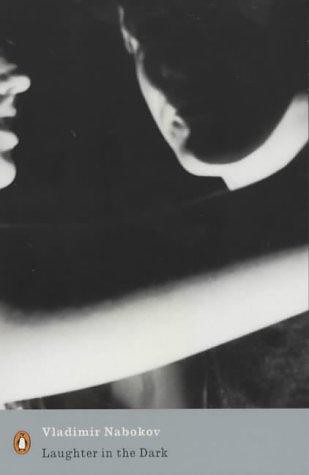
2001 Penguin Classics cover, using what appears to be a scene from the 1969 film, as seen below
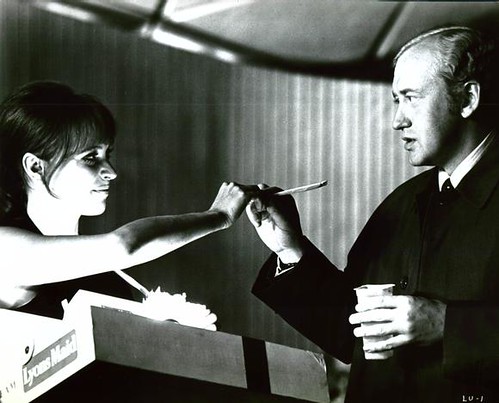
"Hardly had he entered the velvety darkness when the oval beam of an electric torch glided towards him (as usually happens) and no less swiftly and smoothly led him down the dark and gently sloping gangway. Just the light fell on the ticket in his hand, Albinus saw the girl's inclined face and then, as he walked behind her, he dimly distinguished her very slight figure and the even swiftness of her dispassionate movements." (Nabokov, 13)
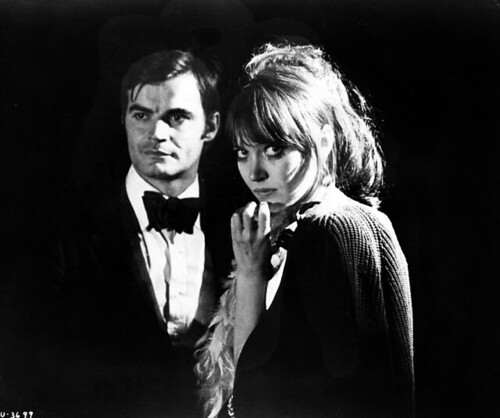
"And she liked Miller enormously. There was something so satisfying about the grip of his hands, the touch of his thick lips. He did not speak to her much, but her often held her on his knees and laughed quietly as he mused over something unknown." (23)
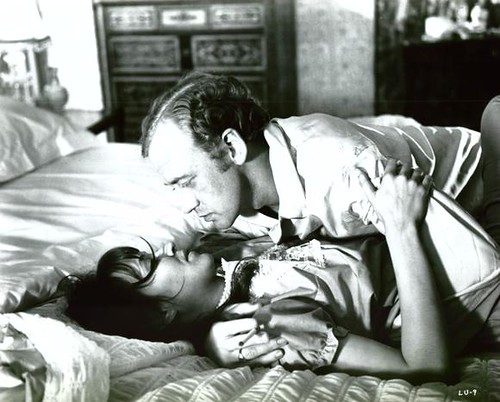
"He kept discovering new charms in her – roaching little things which in any other girl would have seemed to him coarse and vulgar. The childish lines of her body, her shamlessness and the gradual dimming of her eyes (as if they were being slowly extinguished like the lights in a theatre) roused him to such frenzy that he lost the last vestige of that diffidence which his prim and delicate wide had demanded of his embraces."
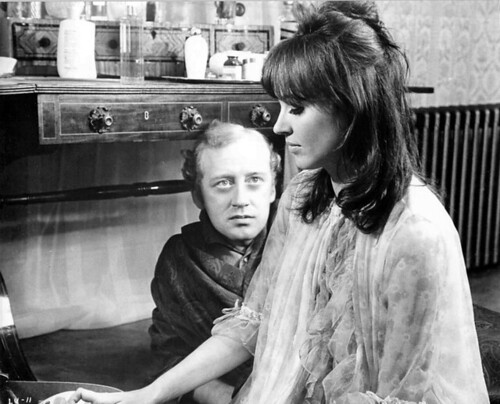
"Something was destroyed for ever; no matter how convincingly Margot tried to prove that she had been faithful to him, everything would henceforth be tainted with a poisonous flavour of doubt." (147)
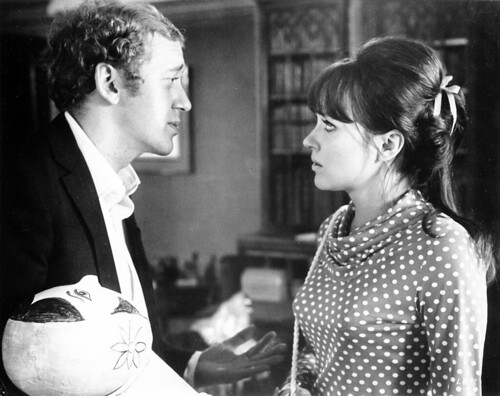

"Margot slowly drew herself up higher and higher, like a snake when it uncoils ... 'I can't go on being only your mistress,' she said, pressing her cheek against his tie, 'I can't. Do something about it. Say to yourself tomorrow: I'll do it for my baby! There are lawyers. It can all be arranged.'" (126)
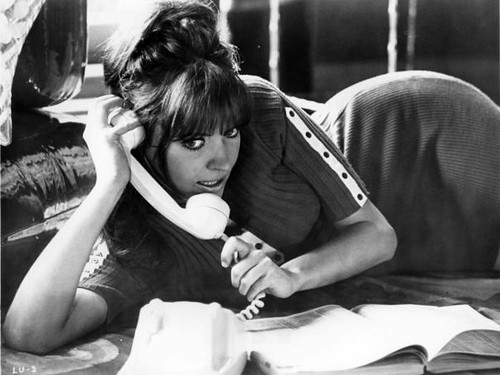
"She amused herself in the way Rex had recommended: lying comfortably in a bright chaos of cushions, she consulted the telephone book and rang up unknown individuals, shops and business firms. She ordered prams, and lilies, and radio sets to be sent to addresses selected at random; she made fools of worthy citizens and advised their wives to be less credulous … she received wonderful declarations of love and still more wonderful curses." (108)
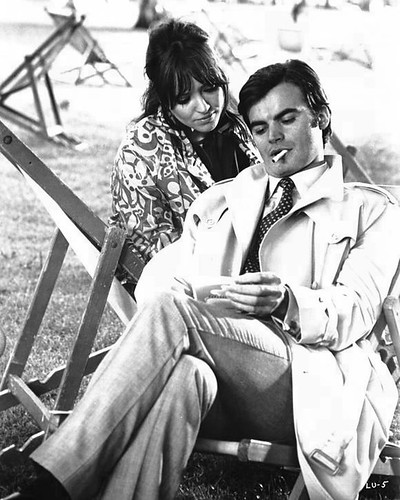
"He [Rex] took life lightly, and the only human feeling that he ever experienced was his keen liking for Margot, which he endeavoured to explain to himself by her physical characteristics, by something in the odour of her skin, the epithelium of her lips, the temperature of her body. But this was not quite the true explanation. Their mutual passion was based on a profound affinity of souls, though Margot was a vulgar little Berlin girl and he – a cosmopolitan artist." (118)


"There were stormy scenes at home, sobs, moans, hysterics. She flung herself on the sofa, the bed, the floor. Her eyes sparkled brilliantly and wrathfully; one of her stockings had slipped down. The world was swamped in tears." (124)



"Now Albunius saw her figure framed in the gay pattern of the beach; a pattern he hardly saw, so entirely was his gaze concentrated on Margot. Slim, sunburned, with her dark head of hair and one arm with the gleam of a bracelet still outstretched after her throw, she seemed to him an exquisitely coloured vignette heading the first chapter of his new life." (73)
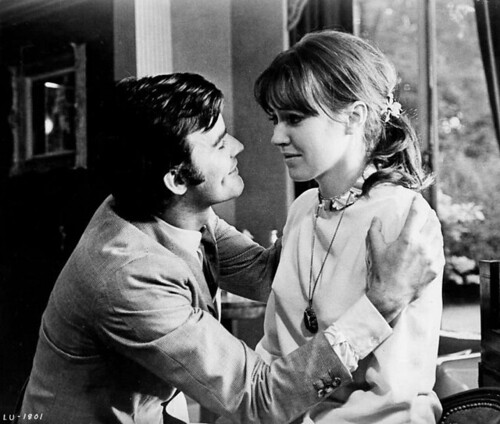
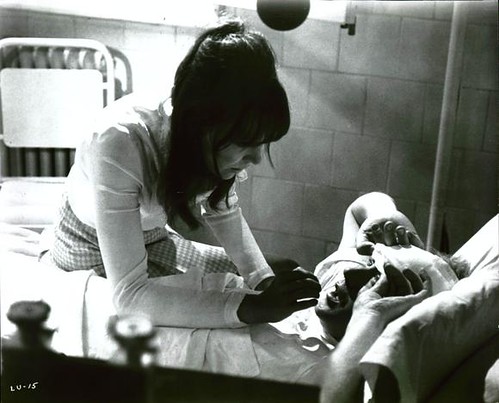
"Albinus’s speciality had been his passion for art; his most brilliant discovery had been Margot. But now, all that was left of her was a voice, a rustle, and a perfume; it was as though she had returned to the darkness of the little cinema from which he had once withdrawn her." (165)
View the rest of the images here.
Read more:
Nicol Williamson obituary
Excalibur star Nicol Williamson has just six mourners at his funeral
